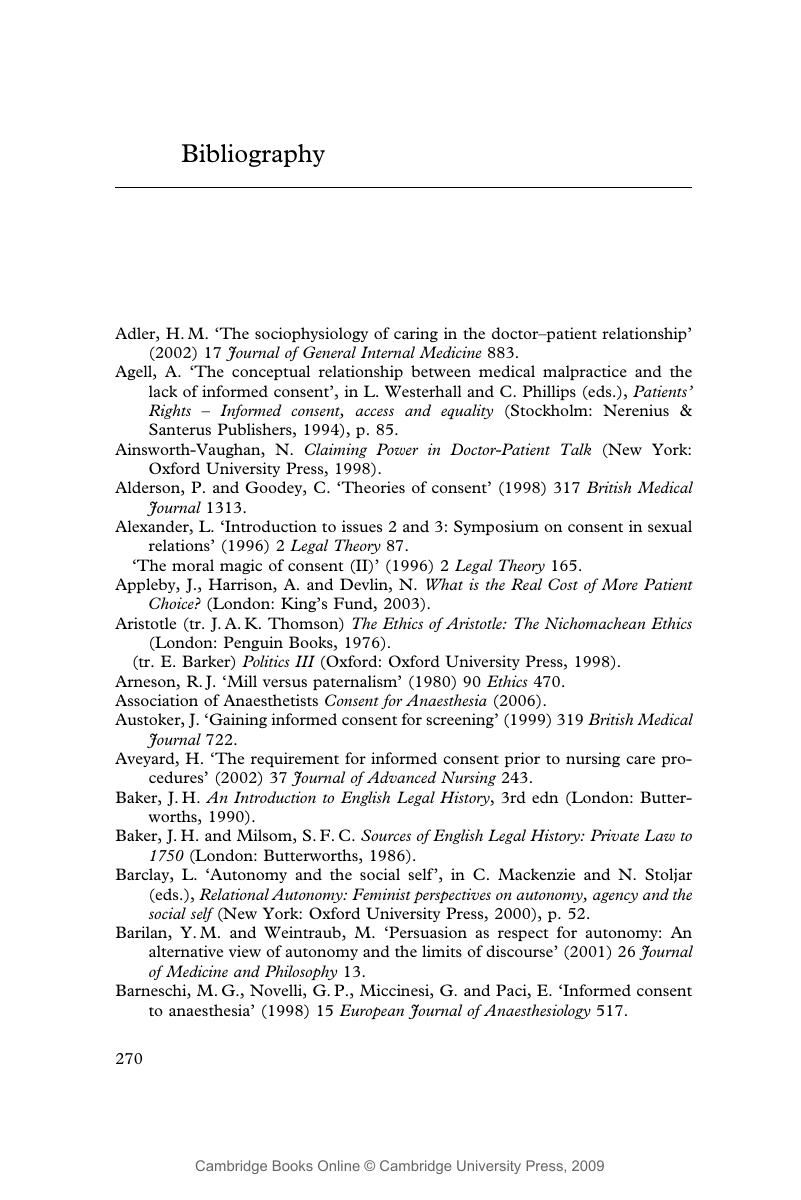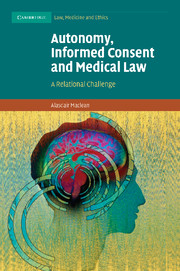Bibliography
Published online by Cambridge University Press: 02 July 2009
Summary

- Type
- Chapter
- Information
- Autonomy, Informed Consent and Medical LawA Relational Challenge, pp. 270 - 289Publisher: Cambridge University PressPrint publication year: 2009



